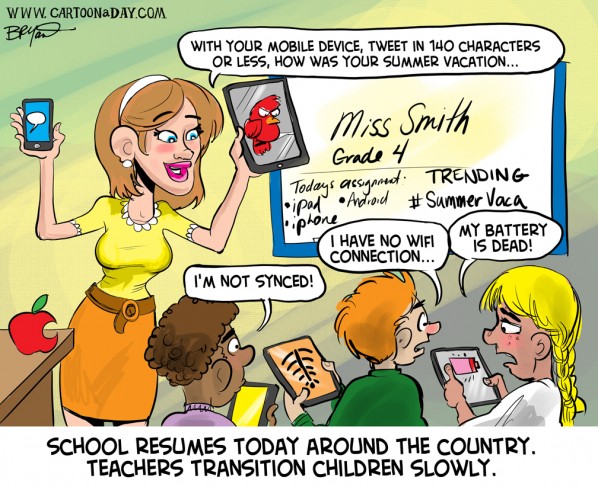Monday, August 20, 2012
Back to School
It's back to school time!
For parents, this can be kind of exciting - let's be honest. For kids, this can be really a really nerve-wracking time. If you rewind back to when you were a kid you might have loved the whole back-to-school thing, but when a child struggles socially, school can be terrifying. You might wonder why your son or daughter seems to be biting their nails more, crying about seemingly small things and having trouble self-regulating - they might just be freaking out about school.
As a parent, here are some things you can do to help alleviate the stress:
(1) Make a calendar
You don't need to make anything fancy - just make it clear, and make it with your child. Grab a blank piece of paper and a sharpie and map out the days leading up to school's return. Mark in any events, appointments or activities that you know will be happening up until school's return. It might be a good idea to write in how many 'sleeps' until the big day. Post the calendar in a place where your child can see it, and cross off the days as they happen.
(2) Drive by the school
A couple of days prior to school's return, it can be helpful to take a walk or drive past school - especially if it is your child's first day at that particular campus. Point out the place where you will be dropping off/picking up your child. If he/she is returning to the same school, talk about some good memories your child has from that school. Create some positive feelings toward school, where possible. Do it for a few days in a row if you can.
(3) Get a schedule from the teacher
If possible, email your child's teacher for the weekly schedule of the class. Sit down with your child and show them how the week is going to look. You might just discover the subjects or activities that stress your child out the most. Some kids love free play/recess, for other kids, this is the most stressful part of their day. Kids with social differences often hold structure very close to their heart.
(4) Role Play
Most kids learn to 'join in' when they are very young. They may ask what the other kids are doing, and whether or not they can play too. Some kids just don't pick up on those kinds of social cues and they need reminders. 'Joining in' changes with time - teach your kids age appropriate strategies for assertively including themselves via role play. If your child is older elementary or beginning middle school, help them out with exposing them to pop-culture that other kids will be talking about. Teach them ball skills to join in with sports. Help your child look their age by dressing them in fashionable clothing and cool hairstyles. If your child already has differences, help them blend in as much as possible on the fashion front.
Good luck! All the best from us to your kids!
Subscribe to:
Post Comments (Atom)

No comments:
Post a Comment